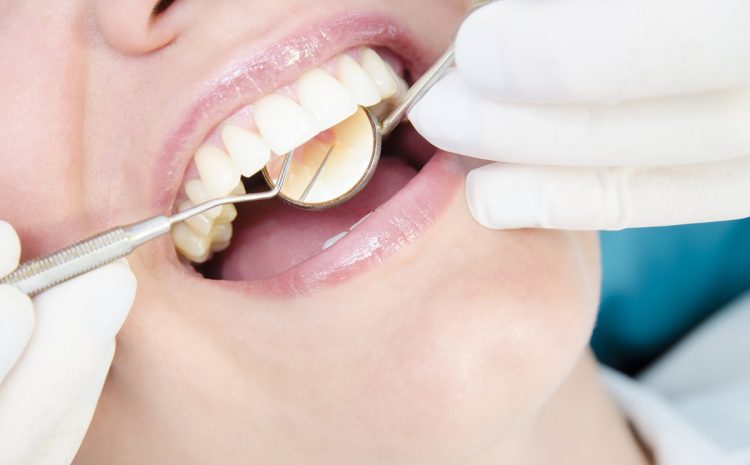Hygienization is a professional procedure carried out in a dental office. It complements daily hygiene procedures and allows you to keep your teeth healthy for longer.
Dental hygiene treatments
Hygienic procedures include scaling and sandblasting. Very often, both treatments are performed simultaneously during one visit. After the procedure, fluoridation is performed to eliminate hypersensitivity.
Scaling
Scaling, or descaling with a special ultrasonic scaler, allows you to remove the hard scale that covers the surface of the teeth. It also removes tartar build-up from the interdental spaces. This is the first hygienic procedure, because only after the removal of tartar can you access the surface of the teeth, even to assess whether caries developed. It is also worth remembering that any irregularities on the surface of tartar may be a habitat of bacteria, the presence of which may cause an unpleasant smell.
Sandblasting
Sandblasting consists of the mechanical removal of soft deposits and bacterial plaque with a sandblaster. It also reduces unsightly build-up on the surface and in the interdental spaces, which is also important because it is underneath that the formation of caries often begins. Sandblasting cleans the entire surface of the tooth and allows you to remove deposits also from those places where the brush fibers do not reach, preventing the exposure of the tooth necks and the associated hypersensitivity.
Fluoridation
Fluoridation is a procedure consisting in covering the surface of the teeth with an agent with a high concentration of fluoride compounds. These compounds strengthen and rebuild damaged tooth enamel, providing stronger protection against decay. Fluoridation only makes sense in combination with full oral hygiene procedures. Fluoride must be applied to the cleaned tooth, not to tartar and plaque.
In addition, teeth are polished, which allows for smoothing their surfaces and less deposition of tartar and plaque, so further removal of tartar will be needed only after a long time. However, an important effect of both of these treatments is, above all, the improvement of the aesthetics of the smile.
Indications for dental hygiene treatments
During routine dental check-ups, the dentist may recommend a specific oral hygiene procedure or full hygiene treatment, but you can also make this decision yourself. What are the indications for dental hygiene treatments?
- Previous treatments of this type were carried out a long time ago.
- Appearance of unsightly discoloration due to drinking coffee, tea or smoking, or poor diet.
- Development of tartar deposits hindering proper hygiene or looking unsightly.
- When an unpleasant odor quickly forms in the mouth (including full control of dental and gum health).
Contraindications to dental hygiene treatments
The list of contraindications to dental hygienization is very short and every case should be consulted with a dentist. This list may include serious blood clotting disorders, recent dental crown placement (usually hygiene treatments are carried out before this procedure), mucosal pain, etc.
Effects of dental hygiene treatments
Teeth after scaling, sandblasting, and fluoridation are, above all, well protected. The full hygiene procedure prevents the formation of caries, protects teeth, and restores their aesthetic appearance.
- Scaling and sandblasting are often carried out together. The removal of hard deposits is important, but it does not yet give full protection or optimal aesthetic effects.
- After fluoridation, the risk of cavities is reduced, but the condition for maintaining the effects of this treatment is proper daily care.
- Properly carried out hygiene treatment ensures that the surface of the teeth is not exposed to rapid restoration of deposits of tartar or plaque.
Recommendations after hygiene treatments
Although hygiene treatment is generally not a procedure that would involve more serious consequences, it is worth remembering that after the hygiene treatments, the gums may be irritated. Therefore, it is worth limiting the consumption of hot or cold foods and drinks. Immediately after sandblasting, it is also not recommended to drink coffee, tea, or wine and to eat coloring meals that may leave visible discoloration.
Above all, however, it is important to remember proper oral hygiene daily. Oral hygiene instructions are usually given at the end of the procedure. It is crucial to use dental floss, as well as to avoid excessive fluoridation of the teeth (it can lead to their decalcification and weakening). The exact list of recommendations can be different for every patient, which is why it is so important that hygiene treatments are carried out professionally. Then you will receive tips tailored to your requirements.
Take care of the health of your teeth with us!
Proper oral hygiene involves practically no discomfort, and regular removal of plaque and tartar and protecting the teeth with fluoride may make more serious procedures unnecessary, or at least performed less often. Book an appointment for a hygiene treatment today. Contact us and ask how we can help you take care of your oral health!


